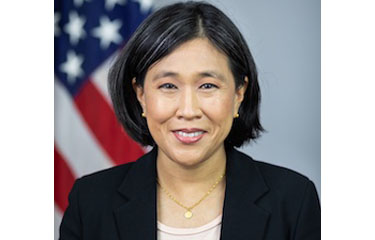Starting Tuesday, 12 October, the administration of U.S. President Joe Biden will begin taking comments on whether the United States should renew tariff exceptions for nearly 550 products from China that the federal government chose to let expire last year.
That list includes four frozen crab meat products sold in airtight containers – king, snow, Dungeness, and “other” – as well as frozen Alaskan sole. The weight limit for the king, snow, and Dungeness crab products is 1.2 kilograms, 1.5 kilograms for “other” crab, and 4.5 kilograms for the sole.
The public comment period will run through Wednesday, 1 December. In a statement last week announcing the new targeted review process, the Office of the U.S. Trade Representative said most of the 549 products identified had exclusions that expired by the end of last year. Each of the products will be reviewed on an individual basis. Officials will review public feedback as well as work with other agencies, including the U.S. Small Business Administration, in making its determinations.
The main purpose behind the reviews will be to determine if the products are only available from China, but officials will also take into consideration the impact reinstating the exclusion – or not reinstating it – will have on commentors and American interests such as small businesses, domestic employment, and production.
The public review comes a week after U.S. Trade Representative Katherine Tai announced the administration’s new approach to trading with China, which she made at the Center for Strategic and International Studies. In prepared remarks, she said the tariff exclusions were part of a realignment of trade policies to protect American workers, businesses, farmers, and the middle class.
Tai said that even as the world’s two largest economies agreed to a new trade deal in January 2020, known as the “Phase One Agreement,” it has not addressed all of the issues the U.S. has with Beijing in terms of trade. She added that the U.S. is working with the European Union and other top global economies to develop a series of consistent policies to counter Chinese trade practices, including a focus on China’s practices in the seafood industry.
“In the G7, G20, and at the WTO, we are discussing market distortions and other unfair trade practices, such as the use of forced labor in the fisheries sector, and in global supply chains, including in Xinjiang,” she said. “In the coming months and years, we will build off of this work.”
Any product that has its tariff excluded again will have it backdated to 12 October and will be published in the Federal Register.
Comments are now being accepted at https://comments.USTR.gov.
Photo courtesy of Office of the U.S. Trade Representative







